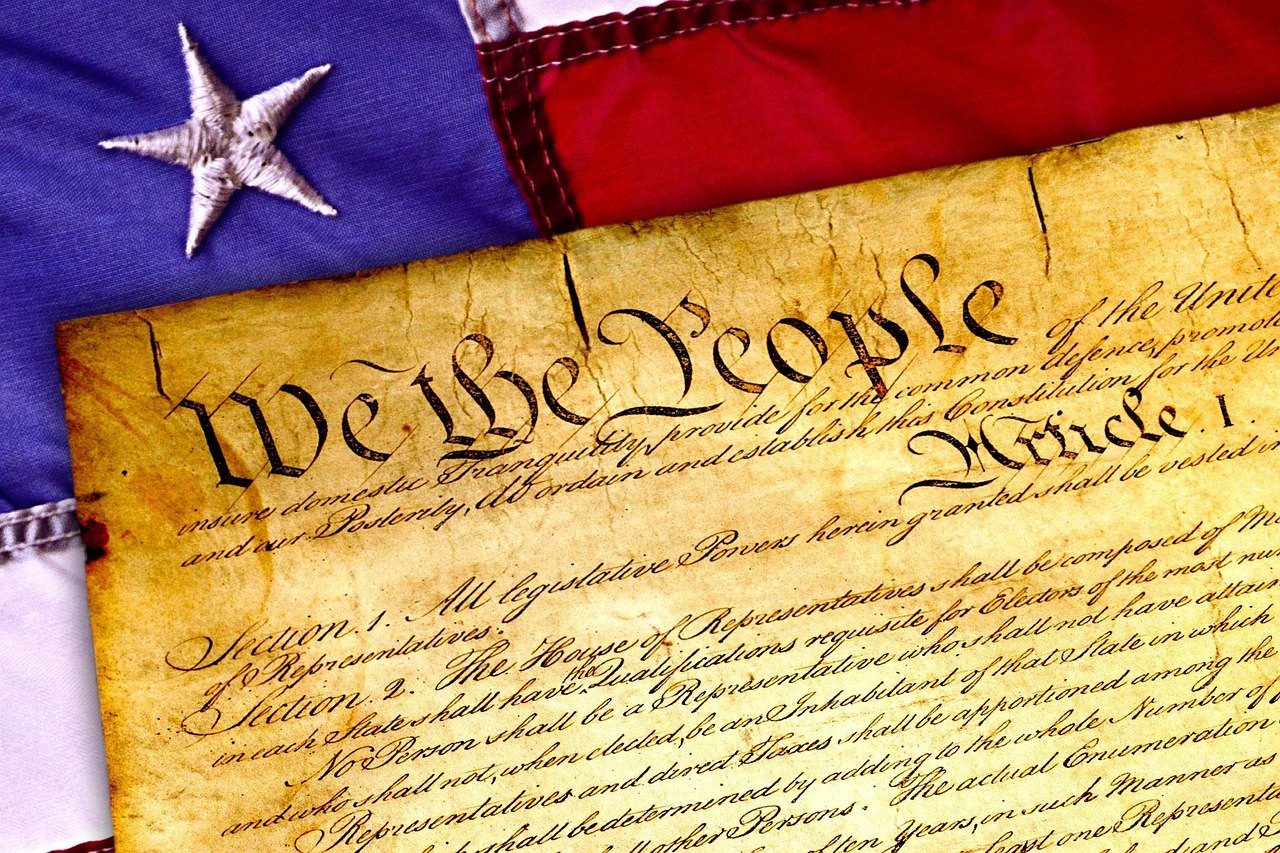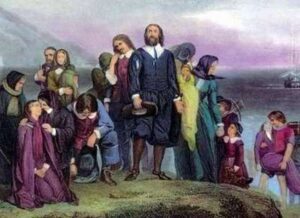
Puritans were people who left the Church of England because they believed it was too “Catholic.” Due to their extremist views, they were persecuted in England, and many sought out new homes. Their main migration was in early 1600’s to the sparsely populated northern English colonies in America. The Puritans were escaping persecution, but they persecuted those of other religions. Their increasing numbers and intolerance led to the establishment of new towns and colonies. Puritans laid the foundation for the religious, intellectual, and social order of New England and influence American life to this day.
The origins of Puritanism are found in the beginnings of the English Reformation, which began in the 1530s when Henry VIII left the Catholic Church and established the Church of England. The Puritans believed the Church of England retained too much of the liturgy and rituals of the Roman Catholic Church. They wanted to “purify” and reform the church, but their numbers were small, and Anglicans believed they were needlessly objecting to aspects of worship that were regarded as harmless and beneficial.
Puritans began to attract more followers and they refused to compromise their beliefs. They believed the Bible was God’s word and they should emulate the model of Jesus Christ and his disciples. They believed there was nothing more important than a person’s religious beliefs, and that they were God’s chosen people. They encouraged literacy for both sexes because they believed every person should be able to read the Bible.
Attending the theater was prohibited as were games of chance. Alcohol was allowed but drunkenness was severely frowned upon. Sex was encouraged only within marriage, and both husbands and wives were expected to be able to sexually satisfy each other. Women were considered spiritually and morally inferior to men as they were tainted by the spirit of Eve but were to be respected and cared for as homemakers and bearers of children.
Beliefs were strongly held by Puritans, and they did not even compromise among themselves. This led to breakaway groups that worshipped and lived separately.

Puritans experienced a “roller coaster” existence in England. After Henry VIII established the Church of England in 1534, the cause of Protestantism advanced rapidly under Edward VI (reigned 1547–53). During the reign of Queen Mary (1553–58), however, England returned to Roman Catholicism, and many Protestants were forced into exile. Many fled to Geneva where John Calvin’s church provided an example of a disciplined church. Elizabeth I’s accession in 1558 was welcomed by Protestants; but her early actions disappointed those who sought extensive reform.
Many Puritans—as they came to be known during a controversy over vestments in the 1560s—sought parliamentary support for a presbyterian organization (church led by a council) for the Church of England. Other Puritans, concerned with the long delay in reform, decided upon a “reformation without delay.” These “Separatists” repudiated the state church and formed congregations based on a direct covenant with God. Both groups, especially the Separatists, were repressed by the establishment.
Denied the opportunity to reform the Church of England, Puritans turned to preaching, pamphlets, and a variety of experiments in religious organization. Growth also owed much to patrons among the nobility and in Parliament and control of colleges and professorships at Oxford and Cambridge.
Puritan hopes were raised when the Calvinist James VI of Scotland succeeded Elizabeth I as James I of England in 1603. But at the Hampton Court Conference in 1604 he dismissed the Puritans’ grievances with the phrase “no bishop, no king.” Some Puritans were deprived of their positions; others got by with minimal conformity; and others fled England. The pressure for religious conformity increased under Charles I (1625–49) but despite this, Puritanism continued to grow.
In the 1640s, civil war broke out between Parliament and Charles I, and Puritans were involved in it through the politics of religion. Charles I was executed on 30 January 1649, and the war continued. Following the civil war Oliver Cromwell became Lord Protector of England, Scotland, and Ireland in December 1653.
Cromwell’s religious policy favored the Puritans. When Cromwell died in 1658, conservative Puritans supported the restoration of King Charles II hoping for more favorable religious changes. However, they were outmaneuvered, and lost all political power. English Puritans then entered a period known as the Great Persecution.

Puritanism played a significant role in the seventeenth-century English colonies in the New World. Puritans were not limited to New England but settled in various colonies including Virginia. Sir Thomas Dale brought Puritan ideals and military discipline to Jamestown in 1611 and rescued that settlement from extinction.
The history of Puritans in Virginia was short—most people of Puritan sentiments were gone by 1650— but by examining their plight, particularly in the 1640s, the importance of religion to English settlers becomes clear.
The methods used to govern the rapidly expanding Virginia Colony included attempts to bring the Puritan settlers into stricter conformity with the Church of England. Those efforts peaked with the 1641 arrival of Governor Sir William Berkeley and his attempts to remove nonconformists through legislation. The governor was not entirely successful, but the courts ordered the “voluntary” removal of Puritan settlers to the more “tolerant” colony of Maryland.
To the north, Puritans fleeing the persecution of James I made up half the passengers aboard the Mayflower when it arrived in the New World in 1620. The Mayflower passengers began the settlement of New England by establishing Plymouth Colony. More than half of the Mayflower settlers did not survive the first winter, but with the help of local Indians, the survivors managed to hold onto their settlement. When word of the “success” of the Plymouth settlement reached England in 1622, it led to the period that was designated the Great Migration (or the Puritan Migration). Between 1620-1640 over 20,000 English Puritans migrated to New England, and most settled in Massachusetts.
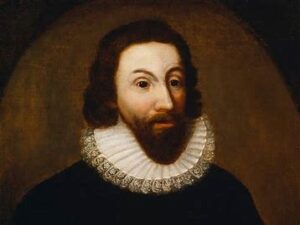
In 1630 a fleet of ships carrying 700 Puritans led by John Winthrop arrived and established the Massachusetts Bay Colony centered on Boston. Winthrop believed the colony would be a city on a hill, which was a reference to the biblical passage of Matthew 5:14: “You are the light of the world. A city that is set upon a hill cannot be hidden.” Winthrop also believed the colony would draw others to it and be an example of true Christian faith. The Massachusetts Bay Colony quickly absorbed the smaller Plymouth Colony.
The original pattern of church organization in the Massachusetts Bay colony was a “middle way” between Presbyterianism and Separatism, yet in 1648 four New England Puritan colonies were established with a congregational form of church government (each congregation is independent).
The New England Puritans fashioned the civil commonwealth according to the framework of the church. Only the ‘chosen” could vote and rule. When this raised problems for second-generation residents, they adopted the Half-Way Covenant, which permitted baptized, moral, and orthodox persons to share the privileges of church membership.
The Puritans had come to North America to escape religious persecution, but they were not interested in the religious freedom of others. The Massachusetts Bay Colony was ruled by Puritan belief and demanded strict and proper behavior (as defined by the Puritans) from its citizens. Jews, Catholics, Anglicans, Quakers, and other Christian sects were considered to be hell-bound. Quakers were especially hated because they believed a spark of the divine light was present in everyone, so every person was worthy of respect. This contradicted the central Puritan belief in themselves as God’s only “chosen people.”
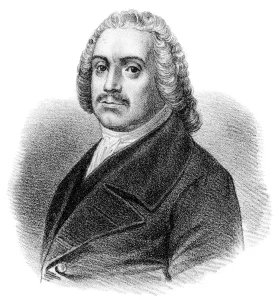
Puritan intolerance of non-Puritans led to further migrations by those groups (and by Puritans who were more tolerant and open-minded), to surrounding regions. The best known was Rhode Island Colony established by Roger Williams who had been banished from Massachusetts Bay. Pennsylvania Colony was founded by the Quaker William Penn. Other religious refugees established the colonies of Connecticut, Vermont, New Hampshire, and Maine.
Theological disputes between Puritan congregations in the North American colonies, as well as the arrival of people of other faiths, gradually diluted the Puritan hold over communities by the mid-1700s. However, the Puritans influenced the development and culture of the United States in many ways. They rejected Christmas and it was not celebrated until 1870. Public education was valued because only by reading the Bible could one know God’s will. Harvard University was founded by the Puritans of Massachusetts Bay Colony in 1636 to train clergy, and they encouraged medical knowledge and practice. Their strict observance of the Sabbath led to “blue laws” which restricted business activity on Sundays into modern times.
The Puritans also encouraged racism and sexism because they believed that Africans and Indians were naturally inclined toward Satan or, in the case of women, too weak to resist the devil’s temptations. The persecution of women by witch trials was not confined to Salem, Massachusetts but was also pursued in other New England states.
The Puritans also engaged in and profited from the slave trade. They sold Indians into slavery at the conclusion of the Pequot Wars of 1636-1638, imported African slaves, and sold salted cod to feed the slaves of Jamestown and the West Indies.
The American view of Puritans as taught in schools is of gentle religious people in funny clothing that were depicted standing on Plymouth Rock. They settled in New England establishing towns, churches, and government. They celebrated the first Thanksgiving with the local Indians who had helped them survive. They did banish Roger Williams but that was good because he founded Rhode Island.
Although this view is true, it is highly romanticized. First, at least half of the people who landed at Plymouth Rock were not Puritans. They did establish towns, churches, and government, but they excluded and discriminated against non-Puritans and women. Roger Williams was banished with people who believed as he did, and banishment meant you were out right now. You were on your own to build a new town.
The Puritans were mentally and physically tough. They were sexist and racist and often cruel. They genuinely believed they were God’s chosen people and could do anything they believed was God’s will.
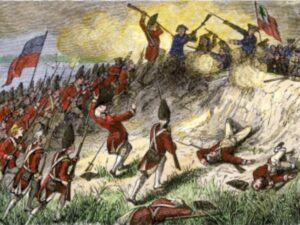
Despite their shortcomings, the Puritans were products of their time, and were the first to settle and bring order to New England. Several Christian denominations owe their existence to the Puritans. In short, the Puritans were essential to the settlement of America. The New England culture produced tough and determined men who were the first to rebel against the British and the first to fight the vastly superior British army.
